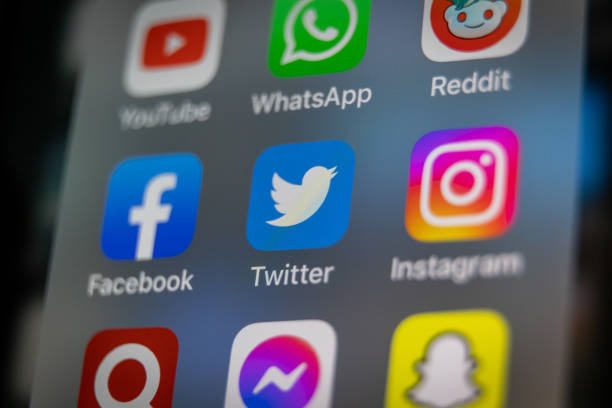In the ever-evolving landscape of technology, the term “app” has transcended its humble origins to become a ubiquitous and inseparable part of our daily lives. From the moment we wake up to the time we go to bed, apps seamlessly intertwine with our routines, making tasks easier, connections stronger, and experiences more immersive. As we navigate through this digital age, it’s impossible to overlook the profound impact that apps have had on shaping the modern world.

The journey of apps began with the dawn of the digital era, where innovation and curiosity led to the creation of software applications that could execute specific functions on electronic devices. These fledgling apps, often simple in nature, opened the door to endless possibilities, setting the stage for a technological revolution that would touch every corner of society.
From smartphones that fit into the palm of our hands to the powerful computers that power industries, applications have forged an unbreakable bond with these devices. Every tap, swipe, and click is a testament to the intricate craftsmanship that goes into developing apps tailored to each platform’s unique characteristics. This symbiotic relationship between devices and apps has given birth to a digital ecosystem that thrives on efficiency, convenience, and connectivity.
Applications have not merely enhanced our digital experiences; they have fundamentally transformed them. In an era where information flows ceaselessly, apps act as gateways, granting us instant access to a world of knowledge, entertainment, and communication. Need to catch up on the latest news? There’s an app for that. Craving a dose of laughter? Just tap on an app that delivers humorous content. Want to connect with friends oceans apart? Social media apps bridge the gap effortlessly.
But the significance of apps doesn’t stop at convenience; it extends to the very fabric of how we perceive and engage with technology. Gone are the days of complex commands and convoluted interfaces. Apps have ushered in an era of user-friendly interactions, where anyone, regardless of technical expertise, can seamlessly navigate through virtual landscapes. This democratization of technology has made the digital realm accessible to all, empowering individuals to harness its potential for their personal and professional growth.
What’s truly remarkable is how apps have dissolved the boundaries between our physical and virtual realities. They have become conduits through which we shop, learn, work, and even explore uncharted territories. Whether we’re embarking on a fitness journey with a health app, attending virtual meetings through conferencing apps, or immersing ourselves in distant cultures through educational apps, the world is at our fingertips, ready to be explored and experienced.
In this article, we embark on a journey to unveil the very essence of an app – to dissect its role, its evolution, and its power. By understanding the intricacies of what constitutes an app, we gain insight into the foundations that have reshaped society’s interactions with technology. Join us as we dive deep into the realm of applications, where lines of code transform into windows of opportunity, and where the promise of innovation continues to fuel the boundless horizon of human creativity.
READ ALSO;
- SEO and Social Media Marketing Services: A Winning Combination
- Optimizing Business Processes with ERP 2: A Comprehensive Guide
- Understanding the United State Bankruptcy Court Florida for Financial Relief
- Decoding the Business Management Degree Abbreviation for Success
- Unleashing the Potential of AWS Cloud Provider Services for Seamless Business Operations
Definition of App: Unveiling the Basics
At its core, an app, short for “application,” refers to a software program designed to perform specific tasks or functions on various electronic devices. These devices can range from smartphones and tablets to computers and even wearable gadgets. Apps can serve a multitude of purposes, such as providing entertainment, aiding productivity, connecting people, and delivering information.
The Evolution of Apps: From Humble Beginnings to Global Phenomenon
Apps have come a long way since their inception. In the early days of computing, applications were relatively simple and often focused on performing singular tasks. However, as technology advanced, so did the capabilities of apps. Today, we have a diverse array of apps available, catering to virtually every aspect of our lives.
Importance of Apps in Modern Society
In the digital age, the importance of apps in modern society cannot be overstated. These digital powerhouses have reshaped the very fabric of our existence, infusing convenience, connection, and enrichment into every facet of life. Let’s delve deeper into the domains where apps have not only made their mark but have become integral pillars of our contemporary lifestyle.
Enhancing Productivity: Fueling Efficiency and Collaboration
In the realm of productivity, apps act as catalysts that propel individuals and businesses toward greater efficiency and effectiveness. The sheer variety of productivity apps available reflects their adaptability to diverse needs. Project management apps streamline intricate workflows, ensuring tasks are completed seamlessly and deadlines are met. Document editing tools allow for real-time collaboration, obliterating the need for constant back-and-forth emails. Time-tracking apps empower individuals to manage their schedules with precision, boosting productivity by maximizing every moment.
Entertainment on Demand: Revolutionizing Leisure Time
Gone are the days when entertainment was confined to static mediums. With the advent of apps, the entertainment industry has undergone a complete overhaul, giving birth to a new era of immersive experiences. Streaming services offer a treasure trove of movies, shows, and documentaries, available for instant consumption. Gaming apps transport players to virtual realms, where challenges, adventures, and competitions await. Social media platforms have revolutionized how we connect, engage, and share, turning ordinary moments into digital legacies.
Connecting People: Bridging Geographical Divides
Distance is no longer a barrier to staying connected with loved ones and colleagues. Communication apps have transcended borders, enabling seamless interaction and fostering a sense of togetherness irrespective of physical distance. Video conferencing apps allow face-to-face conversations, making virtual meetings feel personal and meaningful. Messaging apps facilitate instant communication, enabling us to share news, updates, and emotions in real time. The world has become smaller, and connections have grown stronger, thanks to the power of communication apps.
Simplifying Daily Life: Making the Mundane Magical
Apps have breathed new life into everyday routines, transforming mundane tasks into opportunities for efficiency and enjoyment. Weather forecast apps eliminate uncertainty by providing real-time weather updates, helping us plan our activities with precision. Navigation apps guide us through unfamiliar terrain, ensuring we reach our destinations hassle-free. Fitness tracker apps monitor our health goals and progress, turning exercise into a fun and rewarding journey. Recipe organizer apps offer culinary inspiration, turning cooking into a creative and delightful endeavor.
Education and Learning: Empowering Minds and Curiosity
Education has experienced a paradigm shift with the emergence of educational apps. These digital tools have democratized learning, making knowledge accessible to anyone with a smartphone or tablet. Interactive learning apps engage learners with immersive content, enhancing understanding and retention. Language learning apps offer tailored lessons, transforming the process of mastering a new language into an engaging adventure. Online courses, facilitated by apps, open doors to new skills and knowledge, enabling lifelong learning that adapts to our busy lives.
The App Ecosystem: Exploring Different Types of Apps
Apps can be categorized into various types based on their functionality:
Native Apps
Native apps are designed for a specific platform, such as iOS or Android. They offer a seamless user experience by utilizing the platform’s features and capabilities.
Web Apps
Web apps are accessed through web browsers and do not require installation. They are versatile and can work across different devices and operating systems.
Hybrid Apps
Hybrid apps combine elements of both native and web apps. They are developed using web technologies but can be installed on a device like a native app.
Productivity Apps
Productivity apps assist users in managing tasks, schedules, and work-related activities. Examples include to-do list apps, calendar apps, and note-taking apps.
Entertainment Apps
Entertainment apps provide various forms of amusement, including games, music streaming, video streaming, and social media platforms.
Utility Apps
Utility apps offer practical functions such as weather updates, navigation, and language translation.
FAQs About Apps
What is the primary purpose of an app?
An app’s primary purpose is to perform specific tasks or functions on electronic devices, enhancing user experiences and facilitating various activities.
Are all apps free to use?
While many apps are available for free, some may require a purchase or subscription for access to premium features or content.
How do I download and install an app on my device?
To download and install an app, visit the respective app store for your device (e.g., Apple App Store or Google Play Store), search for the desired app, and click the “Install” button.
Can I develop my own app?
Yes, you can develop your own app if you have programming skills or work with a team of developers. Various resources and tools are available to help you get started.
Are apps available for all types of devices?
Yes, apps are designed for a wide range of devices, including smartphones, tablets, computers, smart TVs, and wearable gadgets.
How do apps ensure user privacy and security?
App developers implement security measures such as encryption, secure authentication, and regular updates to protect user data and privacy.
Conclusion
In conclusion, the definition of an app extends beyond its technical aspects. Apps have transformed the way we interact with technology, shaping our personal and professional lives. From boosting productivity to providing entertainment and connecting people, apps are an integral part of our modern society. As technology continues to advance, the app ecosystem will only become more diverse and innovative.
